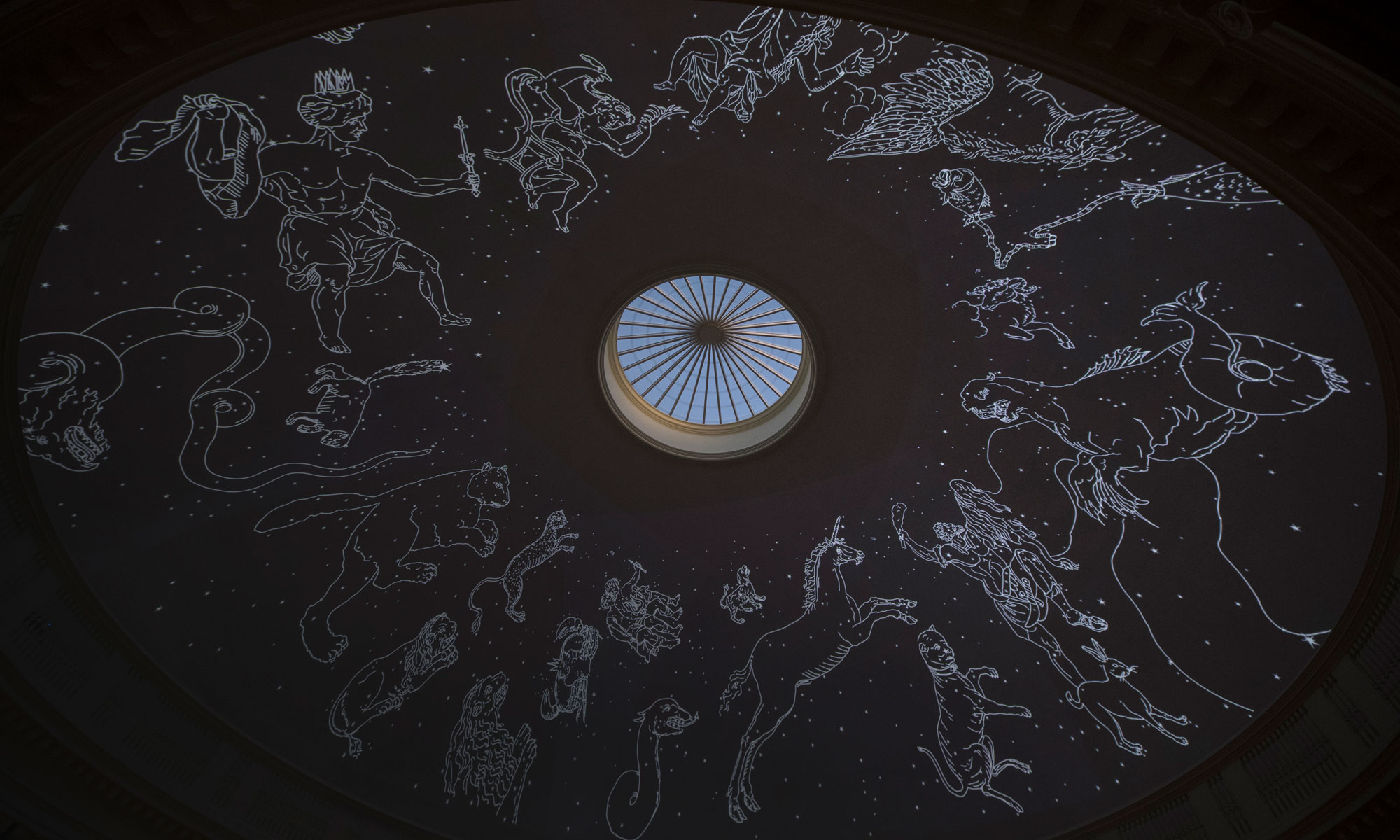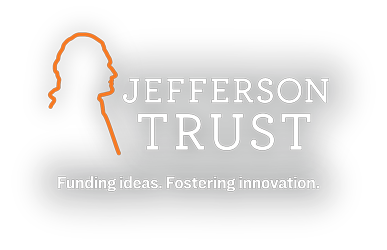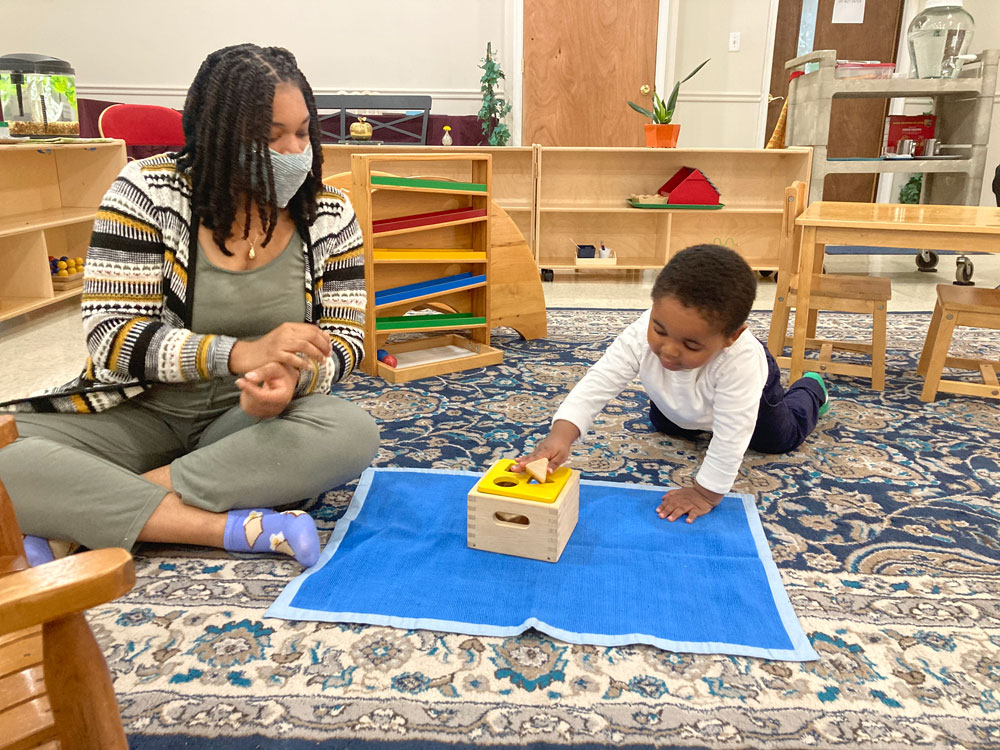Research indicates that a child’s engagement with a specially prepared educational environment and the materials within it can increase the child’s focus, concentration, executive function, sense of positivity and wellbeing about school. Montessori classrooms are among the best at creating this nurturing environment.
Montessori classrooms are distinctive for their aesthetic beauty, their use of furniture and materials made from natural materials (such as wood and glass), and the abundance of artifacts of nature and beauty, like houseplants and art or cultural objects. This opportunity, however, often comes with higher set-up costs than traditional pre-schools.
The Toddler’s House of 10th & Page Montessori Lab School received a $10,000 Jefferson Trust flash grant in January 2021 to offer high-quality, evidence-based childcare in the Montessori format for low-income neighborhood children. Trust funding is helping in the purchase and setup of learning materials and supplies. Director of Operations of the Montessori Science Program, Corey Borgman shares “We have already put Jefferson Trust money to work! We have started a little pilot program and families that have visited the classroom have been blown away by the beauty of the environment and the quality of the materials, all of which were purchased with JT investment.”
The project is a joint initiative of the UVA Psychology department’s Montessori Science Program (MSP), the UVA Equity Center, and community partners Pilgrim Baptist Church and City of Promise. The school is prioritizing children between the ages of 16 months and 3 years who reside within a tri-neighborhood service footprint (Westhaven, 10th & Page and Starr Hill) and whose families have financial need.
“Our driving purpose is to counteract the multi-generational effects of systemic racism and chronic underinvestment in low-income and minoritized communities. Our primary strategy in that work is to leverage the evidence-based power of high-quality Montessori early-childhood education,” Corey says.
Scheduled to open in September, the lab school expands UVA into the community, extending UVA resources and making research and teaching an experiential process. As a research and demonstration site for UVA students and faculty, the school has the potential to adapt to and showcase how the Montessori model can work within under-resourced and minoritized communities.


